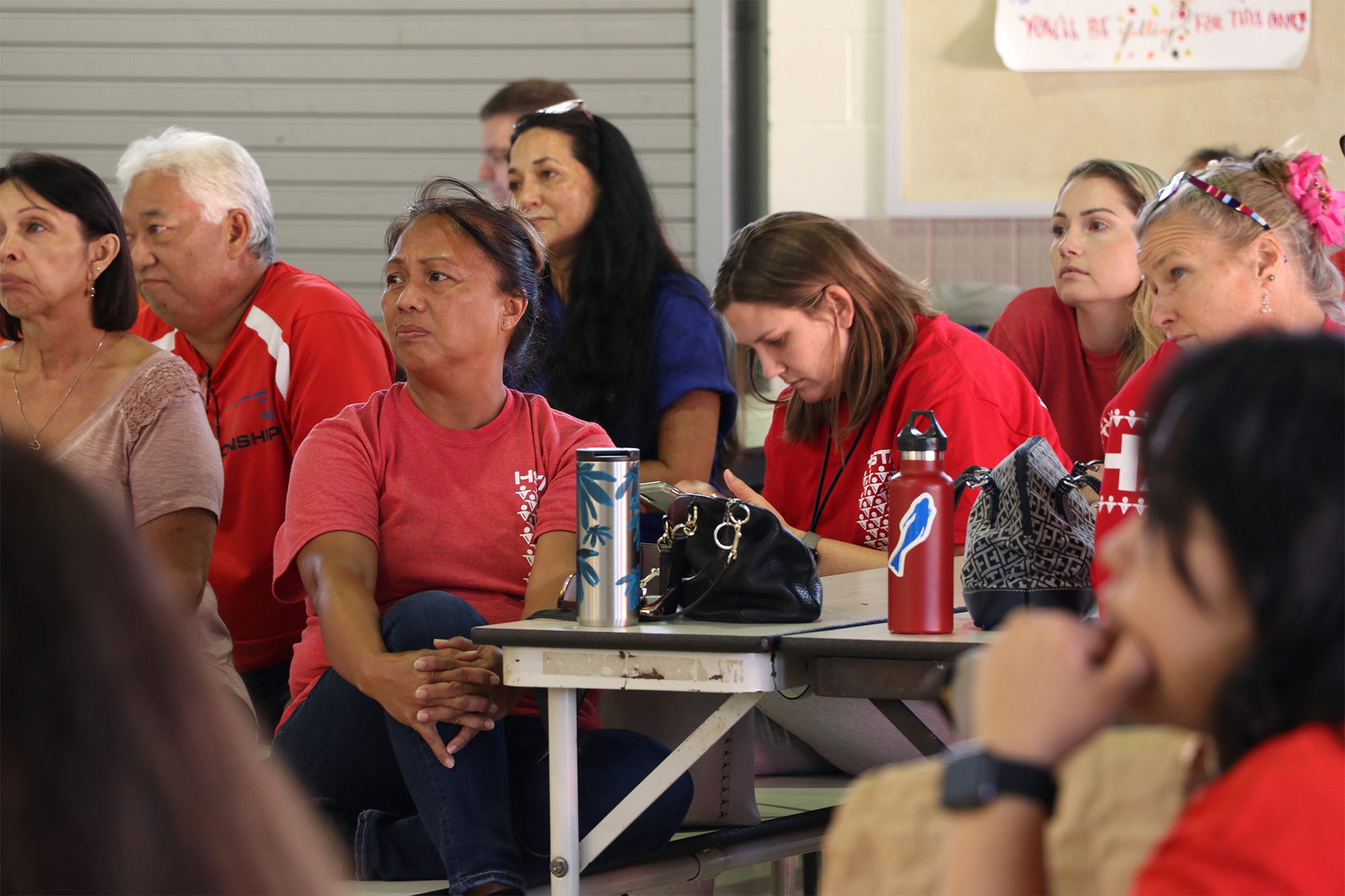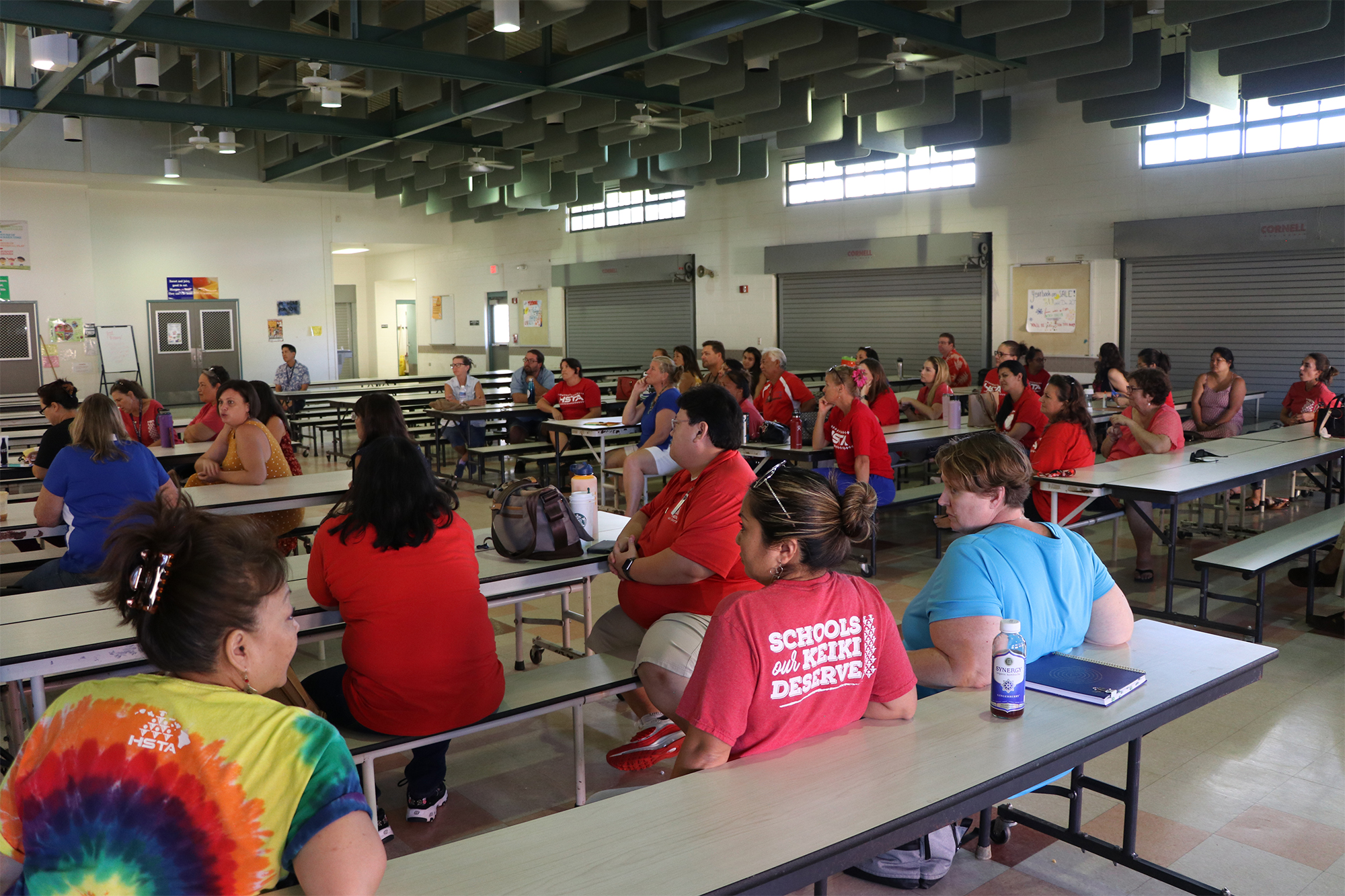
Wendy Nickl, the registrar and curriculum coordinator at Kohala Middle School, and two fellow teachers made the two-hour drive to Keaau High School Thursday to attend a Hawaii State Department of Education listening session that’s part of the state’s teacher compensation study.
Roughly 75 teachers and one principal participated in the two sessions in Keaau.
During the long ride, Nickl said they spent almost no time talking about needing a raise and were more concerned about the effects of the teacher shortage crisis on their students.
Nickl, who has 32 years of service, said she is most concerned about her colleagues who are new to the teaching profession.
“I’m really worried because I work with a lot of young teachers. They need to stay. A lot of our homegrown ones are like the best ever. They get our kids. They’re smart. They’re energetic,” Nickl said, “but they’re despairing about being able to afford housing, especially where we live in North Kohala, it’s super, super expensive.”
Charter school teacher: 'It’s super important to get acknowledged for the service we give our keiki'
Hope McKeen, who teaches at Ka Umeke Kaeo, a Hawaiian immersion public charter school in Hilo, echoed Nickl’s concern.
“Some of the teachers coming in, I hear what they make and I cringe and I feel for them,” McKeen said. “They can go to Target and get a managerial position and make more money.”
Like many experienced teachers who spoke at four DOE listening sessions this week, McKeen said her step pay increases froze or slowed down significantly during the recession and furloughs in the last 10 to 12 years.
“I’m at Step 10. I should be at 14, because I missed all those years of step movements,” McKeen said. “It’s super important to get acknowledged for the service we give our keiki.
“I have a master's (degree). I have all my PD, and I’m still struggling,” she added.
Eric Hagiwara, a math, robotics, and programming teacher at Waiakea High, has taught for 31 years, but has not achieved Class 7, which is the highest classification on the salary schedule reflecting an educator who has additional education credits; either a Ph.D. in Education or 75 professional development and university credits in their licensure area.
“Every other profession, based on experience, you get a pay raise,” Hagiwara, but public school teachers in Hawaii do not and in recent years have had to negotiate for step increases that have been few and far between.
“I advise every kid not to become a teacher, because it would be irresponsible for me to tell someone to get a four-year degree and not make ends meet,” he said.
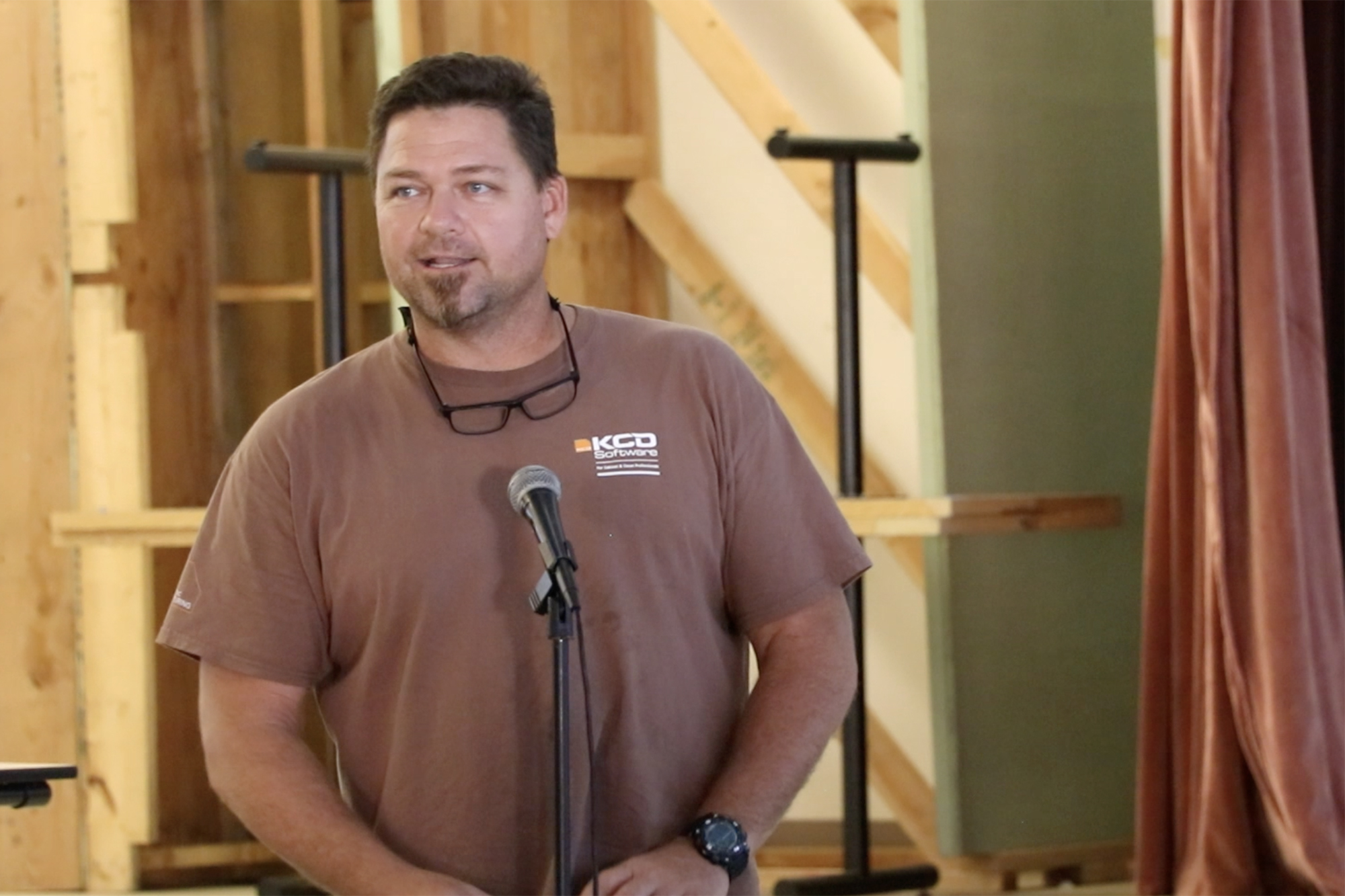
Sam Halsted, shown above, teaches at Waiakea High with Hagiwara. He’s dual-certified in science and technical education, and teaches building construction, design technology, and other courses.
“There’s a skill set that’s built with working with people. That does not come from master's degrees. It doesn’t come from Ph.D.s. It comes from working with people,” Halsted said.
Halsted designs and builds cabinets and renovates homes as a side job to support his family.
“That renovation job I worked over the summer, I surfed in the mornings and worked in the afternoons, and I think I got three or four times what summer school pays,” he said.
Halsted started a geometry of construction class, teaching it jointly with a math teacher.
“So we went to Colorado a number of years ago, and we spent a week or two of our summer getting trained and we were offered, if you guys want to pay $150 or whatever, and you can get University of Colorado credits,” Halsted said. ”I thought I could have gotten three credits for the geometry and construction program we are teaching in Waiakea High School, and I called reclass a bunch of times from Colorado and they kept telling me, 'Nope, it’s not related to a degree, so sorry, it won’t count for anything. You can’t use it.’
“The department’s response is, 'We don’t want to reward you for that,' for any kind of innovation,” Halsted added.
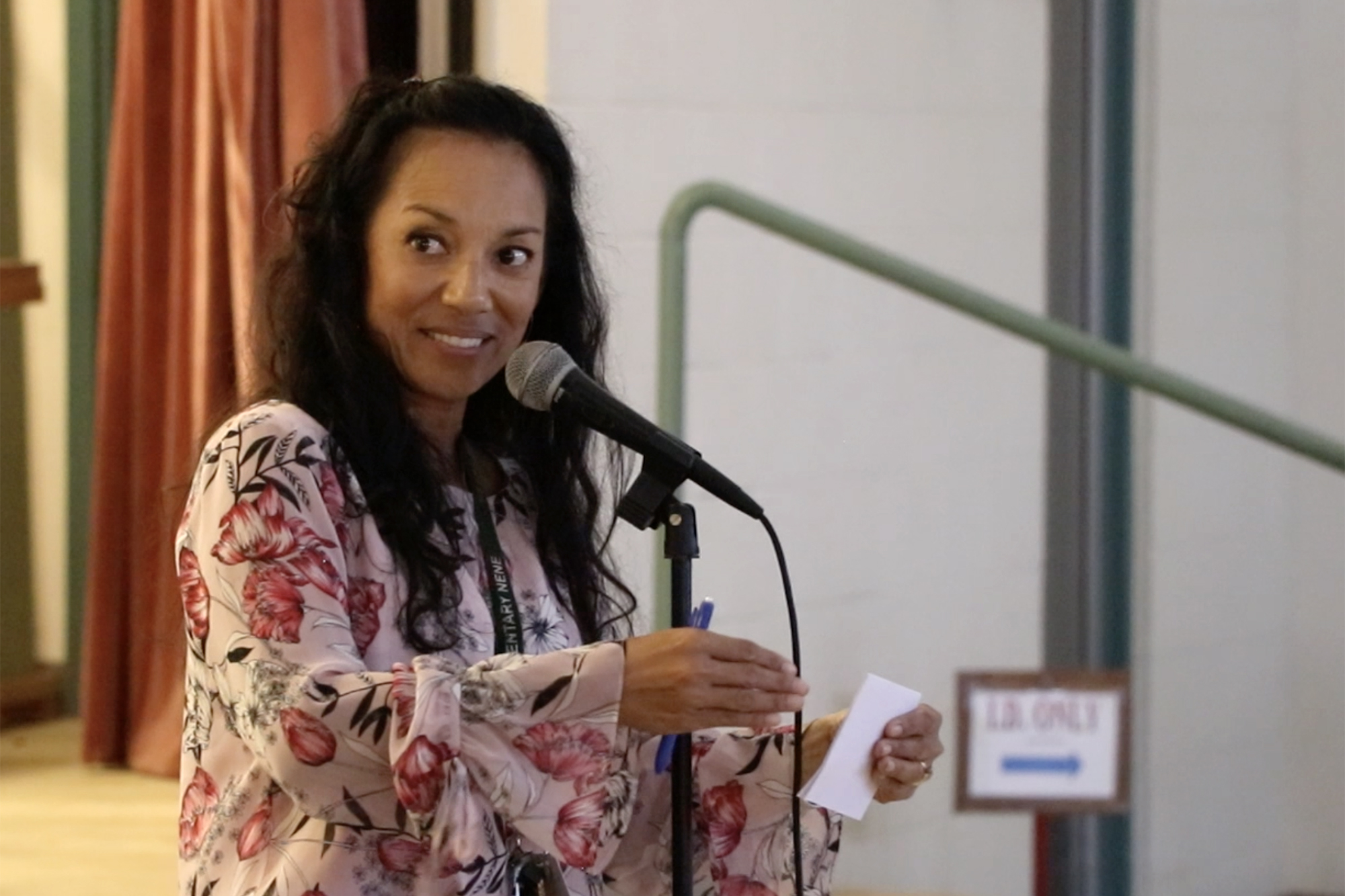
Janice Blaber, shown above, the only principal to speak at Thursday’s Keaau session, said, “Teachers are the foundation of our education system, of the learning that happens in the schools and in the communities, and I see my teachers at Keaau and I see the teachers who I worked with when I was a teacher at Kealakehe High School, but I see my teachers just working so hard, you know? And they really love what they do, they love the kids.
“They are all about the success of what happens in the classroom and the learning environment that they’re creating, and they’re tired, and they’re not getting compensated in a fashion that would equate to the level of effort that they’re putting in, and passion and love that they’re giving to our students,” added Blaber, who is principal at Keaau Elementary.
Other educators who spoke at the Keaau event raised a variety of issues.
- One teacher said there are a lot of top-down decisions in the education department. Even though teachers say a program or policy is not working, DOE officials still say, “'We don’t care, we’re going to roll it out.' There’s no respect for our professional opinion.”
- Another said, “When I moved here from Philadelphia, I took at $20,000 pay cut, but when I found that I only got six years credit from the DOE for 15 years of teaching in Philadelphia, I think that was even a harder hit, because I found that disrespectful.”
- An educator was concerned that new teachers are given non-certified teaching lines, setting them up for failure.
- A teacher complained that instructional resource augmentation (IRA) positions, educational assistants (EAs), paraprofessional tutors (PPTs), and part-time temporary teachers (PTTs) have been taken away, decreasing support for teachers in the classrooms, while the DOE has added more data collection and assessment, equaling less actual teaching of students.
- Another said she received no reimbursement in per diem expenses from the state for more than two years, a complaint repeated by other teachers this week who said they waited many months to reimbursed for official expenses for chaperoning students or attending professional development on the mainland.
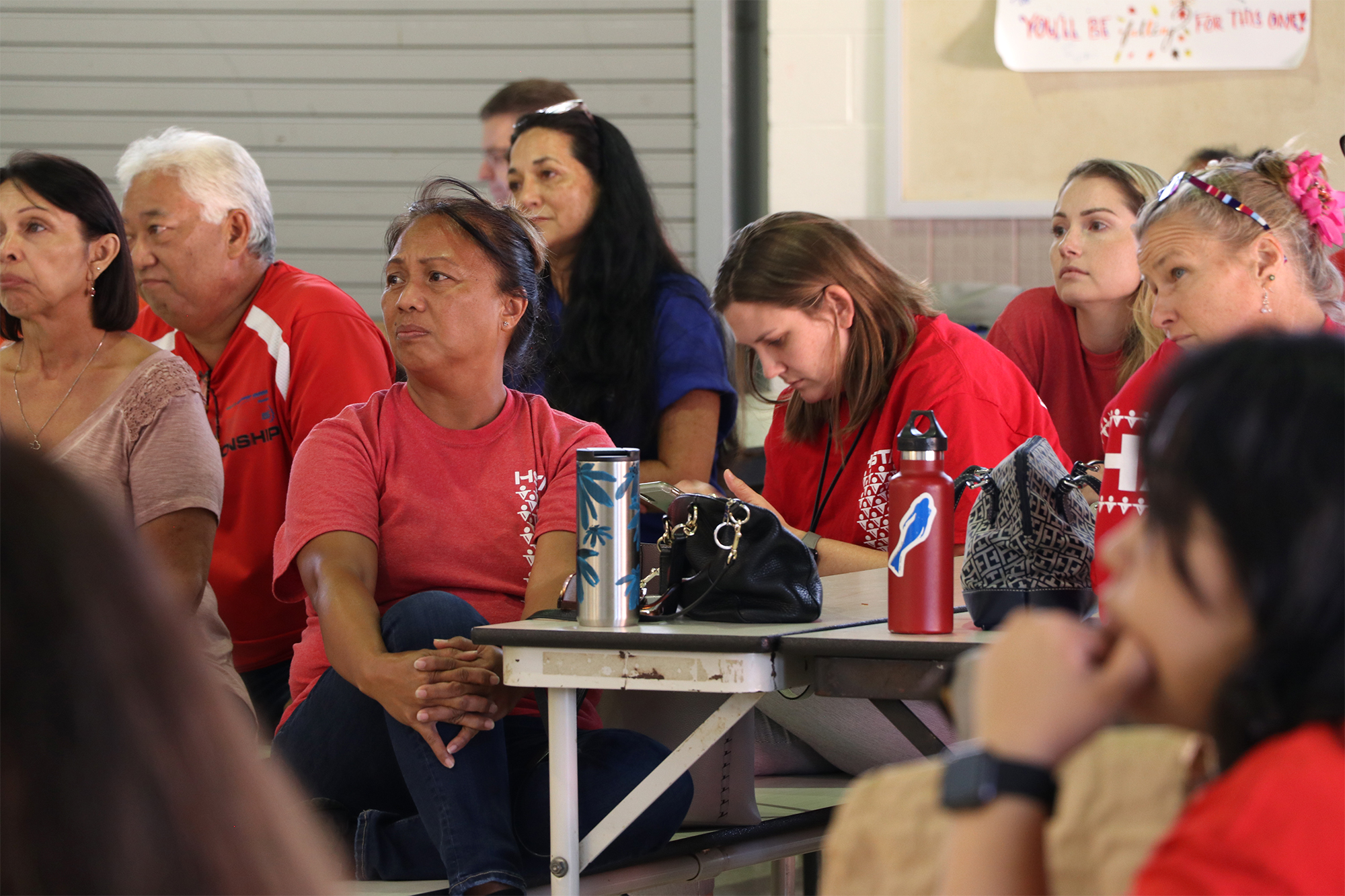
As of Thursday morning, nearly 1,000 people had filled out the state’s online survey about teacher compensation, which will remain open until Oct. 6.
For those unable to attend a listening session, an online survey will be open from Sept. 23 through Oct. 6 to gather feedback. This survey will also be open to parents and community members.
The Denver-based consultants who ran Thursday’s session added some new questions as prompts they showed attendees before hearing their feedback.
One key question in their presentation was, “What factors should be considered to determine a teacher’s salary/incentive pay?” with these categories:
- Education: Degree from a SATEP program? Four-year degree? Certification in a specific field?
- Experience: Teaching (in HI and/or other states)? Other relevant work/military experience?
- Performance: student and/or school outcomes?
- Professional growth: Courses, National Board certification, specific knowledge and skills (“badging” or “micro-credentialing”) and/or performance evaluation ratings?
- Assuming additional responsibilities: Leadership, curriculum or mentoring positions?
- Market-based incentives: Hard-to-staff schools or locations, hard-to-fill subject areas?
After Thursday’s first session had wrapped up at Keaau High, Nickl, the registrar from Kohala, headed back to her car with her colleagues for the long ride home but said they planned to stop by the store first to buy some shoes for students who couldn’t afford new pairs.

